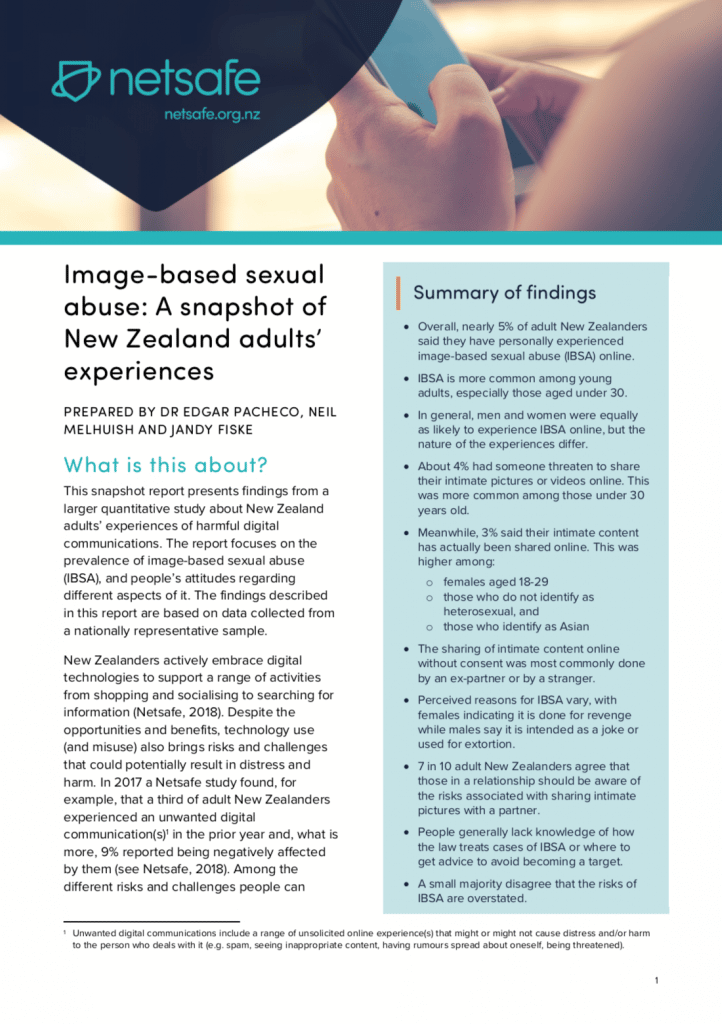Image Based Abuse Report
This snapshot report released January 2019 presents findings from a larger quantitative study about New Zealand adults’ experiences of harmful digital communications. The report focuses on the prevalence of image-based sexual abuse (IBSA), and people’s attitudes regarding different aspects of it. The findings described in this report are based on data collected from a nationally…

This snapshot report released January 2019 presents findings from a larger quantitative study about New Zealand adults’ experiences of harmful digital communications. The report focuses on the prevalence of image-based sexual abuse (IBSA), and people’s attitudes regarding different aspects of it. The findings described in this report are based on data collected from a nationally representative sample.
Summary of findings
- Overall, nearly 5% of adult New Zealanders said they have personally experienced image-based sexual abuse (IBSA) online.
- IBSA is more common among young adults, especially those aged under 30.
- In general, men and women were equally as likely to experience IBSA online, but the nature of the experiences differ.
- About 4% had someone threaten to share their intimate pictures or videos online. This was more common among those under 30 years old.
- Meanwhile, 3% said their intimate content has actually been shared online. This was higher among:
- females aged 18-29
- those who do not identify as heterosexual, and
- those who identify as Asian
- The sharing of intimate content online without consent was most commonly done by an ex-partner or by a stranger.
- Perceived reasons for IBSA vary, with females indicating it is done for revenge while males say it is intended as a joke or used for extortion.
- 7 in 10 adult New Zealanders agree that those in a relationship should be aware of the risks associated with sharing intimate pictures with a partner.
- People generally lack knowledge of how the law treats cases of IBSA or where to get advice to avoid becoming a target.
- A small majority disagree that the risks of IBSA are overstated.
ABOUT RESEARCH AT NETSAFE
Netsafe established a research programme in November 2016 as part of its role as the Approved Agency under the Harmful Digital Communications Act 2015. Netsafe’s research explores the relationship between digital technology, people and society primarily in the context of the risk and impact of harmful digital communications.
Netsafe’s research programme is contributing with exploratory research of topics involving adult and young New Zealanders. Our contribution includes:
- Adult New Zealanders and harmful digital communications.
- Teenagers and the prevalence of the sharing of nudes (‘sexting’).
- Teenagers’ interaction with digital technologies and views on online safety.
- Perceptions of teenagers about digital risks and harm (qualitative).
- A measure of teenagers’ personal experiences of digital risks and harm.
WORK WITH US
We’ve worked on projects with the Ministry for Women (NZ), UK Safer Internet Centre, University of Plymouth (UK), Office of the eSafety Commissioner (Aus), Office of Film & Literature Classification (NZ), UNICEF (NZ), and Waikato University’s CROW Lab. Find us at the conference to discuss how we can work together, or email [email protected]






